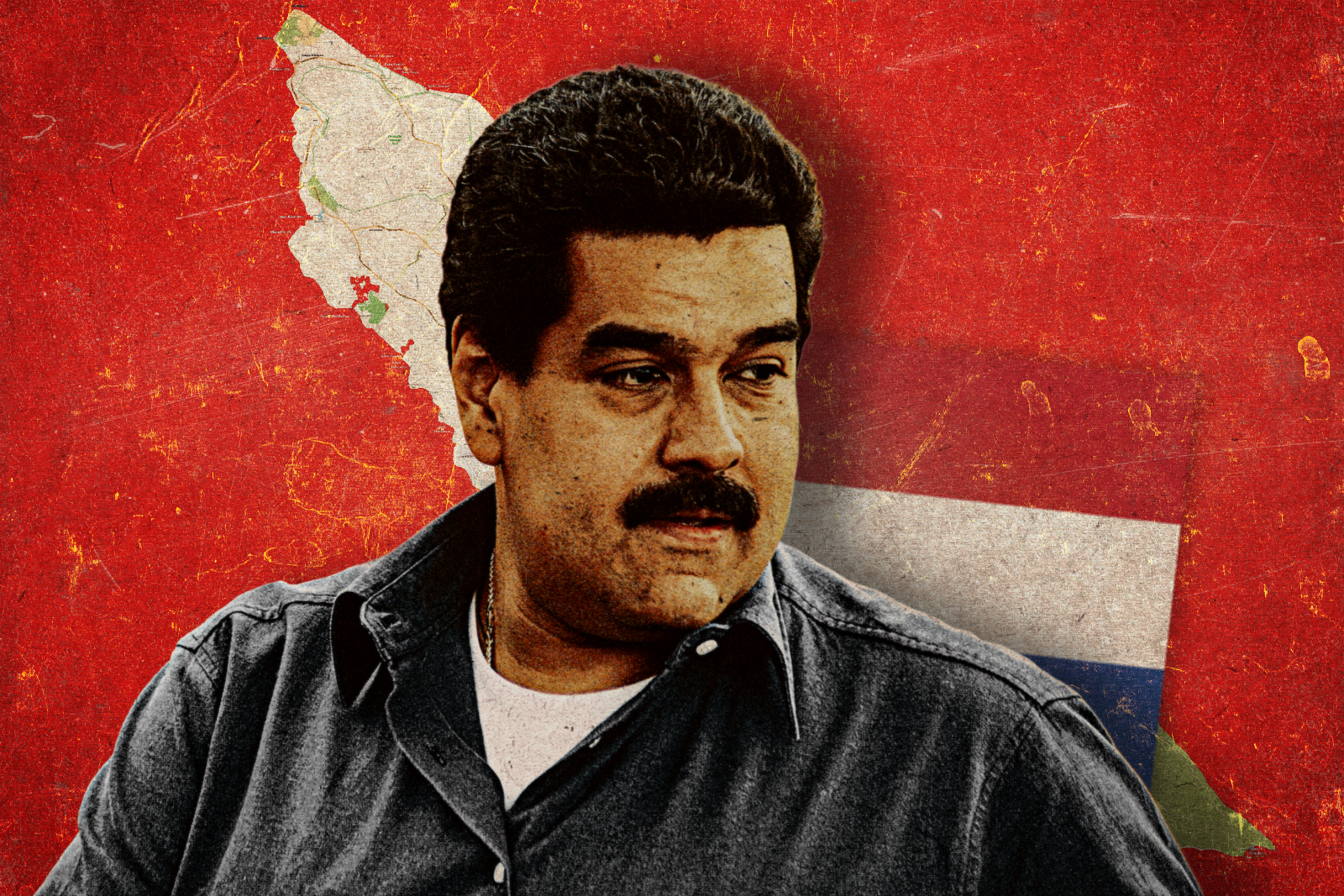
Curacao to Reopen its Borders with Venezuela
Curacao has announced plans to reopen its borders with neighboring Venezuela in April. The Caribbean island, an autonomous country within the Kingdom of the Netherlands, has a complex relationship with Venezuela, which includes trade, the migration of Venezuelans, and the future of Curacao’s vital Isla refinery. Hence, this decision will significantly affect the future relations between Curacao and Venezuela.
Relations between Venezuela and the Dutch Caribbean are not straightforward. It is essential to remember that Aruba, Bonaire, and Curacao (the ABC islands) are autonomous nations within the Kingdom of the Netherlands. While the three islands can create their own domestic policies, The Hague remains in charge of defense and foreign policy. With that said, reopening the borders is a significant development and will have wider ramifications.
Reopening the border
In January, it was reported, “Curacao will receive a delegation from Venezuela at the end of this month for consultations about the re-opening of the borders.” Gilmar Pisas, Curacao’s prime minister, reportedly argued that “the intention is for the borders to open in phases, starting with the maritime borders. This offers the opportunity for Venezuelan fruit and vegetable boats to return to the islands.”
It seems that negotiations were successful, as the government announced its intention to reopen its air and maritime border in April. Venezuelan Foreign Affairs Minister Yvan Gil praised this development, tweeting, “this decision contributes to economic development, social interaction, and the strengthening of historical ties.” Of particular interest is “quick access to the Venezuelan fruit and vegetable market via the boats in Willemstad (Curacao’s capital).” Curacao is highly dependent on trade with Venezuela since working with other trading partners like Colombia increased prices, leaving predominantly low-income people without essential nutrition.
More importantly, Curacao’s tourist industry was affected. Case in point, the island’s floating market was a staple selling point in Curacao’s tourism industry, as Venezuelan boats would dock and sell their wares to tourists. In other words, the market was a strong tourist attraction and a visible manifestation of Venezuelan trade and partnership. Unfortunately, the floating market has been closed since 2018 due to Caracas’ decision to close its border with Curacao.
Aruba is reportedly also considering reopening its borders with Caracas. The Hague’s position regarding the decision by Curacao is unclear.
The migration factor
Due to its geographical location, just some 150 km north of Venezuela, Curacao has become a natural stop-over point for Venezuelans fleeing poverty, violence, joblessness, and the rule of Nicolás Maduro. From there, they can voyage to other islands, the United States, or stay in Curacao. The Dutch military assigned to the Dutch Caribbean, and the Dutch Caribbean Coast Guard, routinely intercept Venezuelans sailing to Curacao or other Dutch Caribbean islands. On many occasions, the Coast Guard has saved the lives of these Venezuelans at sea when their boats malfunctioned. The Venezuelans that do arrive in Curacao take jobs in the informal sector, such as construction, waiting tables, and, sadly, prostitution/sex work. For more context, the documentary on Venezuelan “drinking girls” or Trago Meisjes, is illuminating.
The legal status and living conditions there are problematic, according to Amnesty International, which argues that the government is “still detaining Venezuelans and denying them protection.” Nevertheless, the organization acknowledges “that the Curaçaoan authorities have taken small steps to improve the human rights situation of Venezuelans seeking protection. They set up a Protection Procedure in 2019 and have improved the interviews to assess international protection needs.” With that said, more still needs to be done to improve the quality of life and assistance to the migrants since “it is still difficult to access the Protection Procedure because the Curaçaoan authorities do not guarantee access to information and legal assistance, especially for people in immigration detention.”
Some Venezuelan detainees have sued Curacao for being “unlawfully imprisoned and detained under a stricter regime than regular prisoners.”
The unclear future of Isla
A vital issue for Curacao is the future of the Isla refinery. Venezuelan state-owned oil company PDVSA, under a contract in effect until 2019, leased the island’s only oil refinery from the government, directly employing around one thousand locals. The majority of the oil for the refinery was imported from Venezuela and then exported to the United States and Asia.
When the contract with PDVSA expired in 2019, Curacao looked for new operators. But, unfortunately, a concrete deal has not materialized. According to the Dutch-controlled state holding company RdK, negotiations with a consortium of U.S. and Brazilian firms, called CPR, “aimed at restarting the island’s refinery have been slowed by questions over the credibility of documentation produced by prospective investors.”
The legal status of the refinery is very complex; suffice it to say there are legal cases that prevent the refinery from operating or being sold. In addition, the former general manager and others were arrested and found guilty of corruption regarding the selection of a new operator for the refinery. They reportedly demanded “$750 thousand for the contract and then a fee of $20 thousand every month after that” in addition to a fee for each barrel of oil. There are also accusations of forged documents in connection to the takeover process of the refinery. Plans to utilize the oil storage terminal in Bullenbaai have also run into trouble.
Other scandals include the docking of tanker ships that allegedly illegally transported oil from Venezuela to Curacao. Because of U.S. sanctions against the Maduro government, Willemstad can be punished for aiding Caracas in processing, storing, or transporting Venezuelan oil.
Damen Shiprepair Curacao
In 2019, the Dutch-based shipyard Damen bought the Port of Curacao. The hope was that upgrades to the infrastructure would turn the island into a critical stop for vessels passing through the Panama Canal. Instead, in 2022, Damen announced that an undetermined number of local workers would lose their jobs due to significant restructuring. Nevertheless, the facility remains operational. The shipyard has two docks and can accommodate fairly large ships.
Damen continues investing in the dock to make it a key stop-over port for vessels sailing across the Caribbean. “The re-opening of the refinery would likely be a boost to the business and is likely contributing to the decision to invest in the yard’s facilities,” explained The Maritime Executive. In other words, resolving the drama over the Isla refinery and having it operational would also help the shipyard. If Willemstad can get Isla working again, the island will have an oil refinery and a shipyard contributing to the economy.
Finally…
The situation in Curacao is quite complex. The economy, the pandemic, and the status and future of the island’s vital tourism industry are other challenges that Curacao has to contend with. There are also political challenges and a crisis of good governance, which has prompted the creation of a controversial oversight organ by “mutual arrangement” between the Netherlands and Aruba, Curacao, and Saint Martin.
There are some wider issues to consider as well. First, King Willem-Alexander, Queen Máxima, and their eldest daughter, Princess Catharina-Amalia, visited the six Dutch Caribbean islands (Aruba, Bonaire, Curacao, Saba, Sint Eustatius, and Sint Marteen) earlier this year. The trip was Princess Catharina-Amalia’s first official tour as the future queen since she is 18. When it is the Princess’ turn to rule, it will be essential that she remembers that the Netherlands is not solely European, as the Dutch Caribbean is an integral part that deserves the attention and support of The Hague.
Second, in mid-February, Curacao organized a concert in Willemstad, along with musicians from Venezuela in attendance. This concert serves to demonstrate that, despite political tensions, there are close people-to-people relations and cultural ties that must be protected.
The reopening of the air and maritime border between Curacao and Venezuela will impact trade relations and food security, the latter being a critical topic these days. Moreover, Curacao continues to receive Venezuelan migrants looking for a better life. International cooperation and aid will be necessary for Curacao to treat these individuals humanely and respectfully until a solution can be found. Finally, even Curacao’s industries are tied to Caracas, namely the Isla refinery, whose future operations remain unclear.
The author would like to thank Vanessa van Arendonk for her research assistance.

